#Inauguration of Andrew Johnson
Explore tagged Tumblr posts
Text
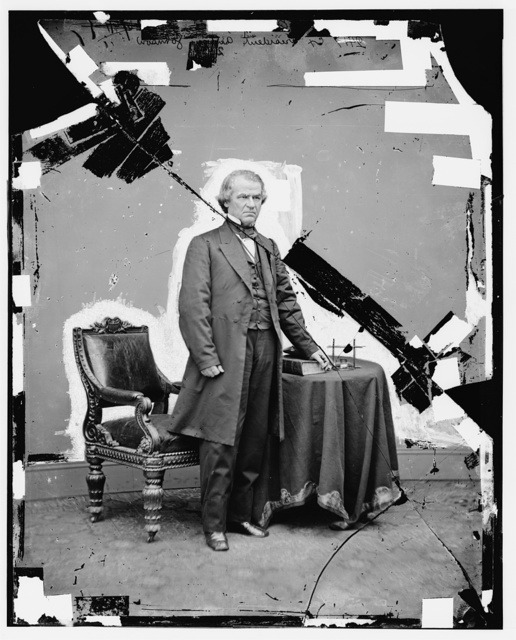
"Johnson is an insolent, drunken brute in comparison with which Caligula's horse was respectable."
-- Senator Charles Sumner (R-Massachusetts) on President Andrew Johnson
#History#Presidents#Andrew Johnson#President Johnson#Vice Presidents#Presidential History#Quotes About Presidents#Quotes#Charles Sumner#Senator Sumner#Reconstruction#Politics#Political History#Political Leaders#Political Rivalries#Radical Republicans#Civil War#Assassination of Abraham Lincoln#Lincoln Assassination#Inauguration of Andrew Johnson#Impeachment of Andrew Johnson#Johnson Impeachment#Political Feuds#Presidency#Congress#U.S. Senate
28 notes
·
View notes
Text
A United States president has left office before completing his term nine times. Four deaths from natural causes, four assassinations, and one resignation.
John Tyler assumed the presidency after William Henry Harrison died shortly after inauguration, but was not re-elected four years later, so he was only elected to the vice presidency.
Millard Fillmore assumed the presidency after Zachary Taylor died, but was not re-elected so he was only elected to the vice presidency.
Andrew Johnson assumed the presidency after Abraham Lincoln was assassinated, but was not re-elected so he was only elected to the vice presidency.
Chester Arthur assumed the presidency after James Garfield was assassinated, but was not re-elected so he was only elected to the vice presidency.
Theodore Roosevelt assumed the presidency after William McKinley was assassinated and was later elected to another term.
Calvin Coolidge assumed the presidency after Warren G. Harding died and was later elected to another term.
Harry Truman assumed the presidency after Franklin D. Roosevelt died and was later elected to another term.
Lyndon Johnson assumed the presidency after John F. Kennedy was assassinated and was later elected to another term.
Gerald Ford assumed the presidency after Richard Nixon resigned and was not re-elected. Ford was also never elected vice president, he was appointed to the position after Nixon's previous vice president, Spiro Agnew, resigned.
Four presidents were elected vice president but not president and one was never elected to either.
14 notes
·
View notes
Text
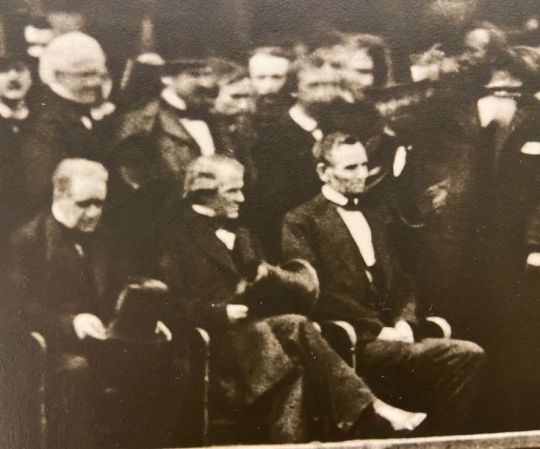
(From Left to Right) Outgoing Vice President Hannibal Hamlin, Incoming Vice President Andrew Johnson, and President Abraham Lincoln seated next to each other during Lincoln’s second inauguration, 1865
18 notes
·
View notes
Text
I found my inaugural First Lady ball gown paper dolls, and I tried to guess the chronological order, based on my vague memories of playing with them as a young girl and my slightly less vague knowledge of fashion history. I was hindered by the existence of some presidents having no/multiple First Ladies and the creator’s reluctance to commit regularly to period silhouettes.
So, first, let’s look at the Era of Old-Timey Presidents Before They Start to Run Together. Here’s the order I guessed:

And here’s what it actually is:

So close! I was foiled by John Quincy Adams having two First Ladies! I assume due to bigamy.
Now, for the Era of Andrew Jackson and Some Other Guys. My guess:

The reality:

Ouch! To be fair, the grasp of 1829-1850 silhouettes is all over the place.
Now for the Era of Civil War-ish Presidents! My guess:

The reality:

Tell Martha Johnson Patterson I hate her.
Now for the Era of Presidents Whom You Might Remember for Their Whimsical Facial Hair/Gruesome Murders. My guess:

The reality:

Fuck all of you. You’re all wearing upholstery.
Finally, it’s the Era of Modern President (circa 1933). My guess:

The reality:

I’m back on top, baby! But why is Edith Wilson a dominatrix?
3 notes
·
View notes
Text
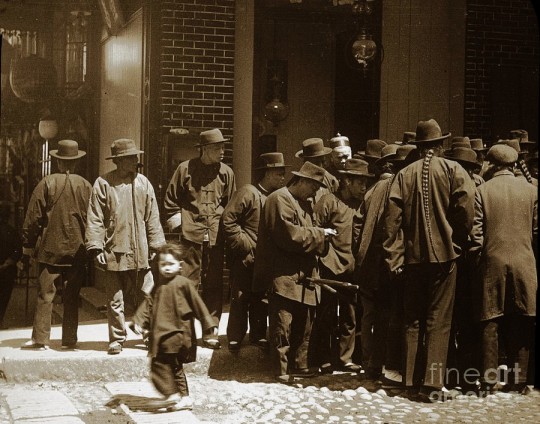
San Francisco Chinatown men with queues, c. 1900. Photographer unknown (from the Pat Hathaway archives).
When San Francisco Criminalized Hairstyle
In a time where hairstyles such as dreadlocks and cornrows have often become a cultural battleground, emblematic of personal expression and cultural identity, the echoes of the San Francisco Queue Ordinance still resonate. As a former staffer in the halls of the US Senate, I recall my boss's assertion during my inaugural week—a proclamation that "there are no new issues." I realized then and now that the often obscure legislation, rooted in different times, can cast a shadow on contemporary debates, illustrating pertinent struggles for autonomy and acceptance within minority communities.
In California, the San Francisco Board of Supervisors passed the Queue Ordinance in 1873. The was law intended to force prisoners in San Francisco, California to have their hair cut within an inch of the scalp. It affected Han Chinese prisoners in particular, as it meant they would have their queue, a waist-long, braided pigtail, cut off. The proposal passed by a narrow margin through the San Francisco Board of Supervisors in 1873. The ordinance was immediately vetoed by Mayor William Alvord. In his veto, the mayor stated that “this order, though general in its terms, in substance and effect, is a special and degrading punishment inflicted upon the Chinese residents for slight offenses and solely by reason of their alienage and race.”
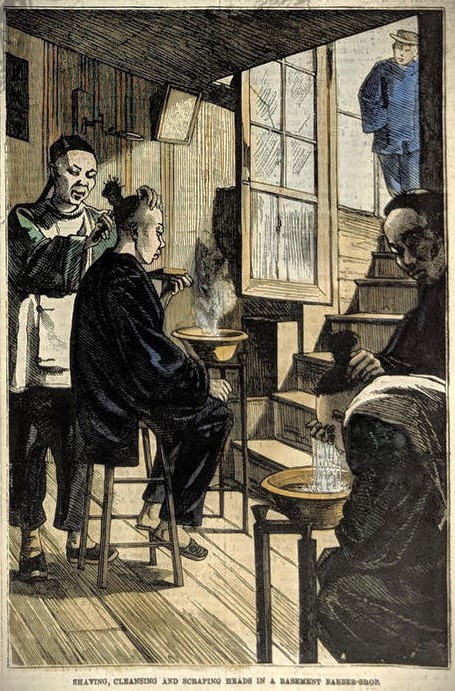
“Shaving, Cleansing and Scraping heads in a Basement Barber-shop,” June 6,1879, from the Frank Leslie’s Illustrated Newspaper.
An identical version of the law was enacted in 1876 and signed by a different Mayor Andrew Bryant. This set the stage for a federal case when a Chinese immigrant named Ho Ah Kow was arrested for living space violations under the city’s Cubic Air ordinance. Unable or unwilling to pay the fine for the violations, he was jailed. His jailers removed his queue during his incarceration.
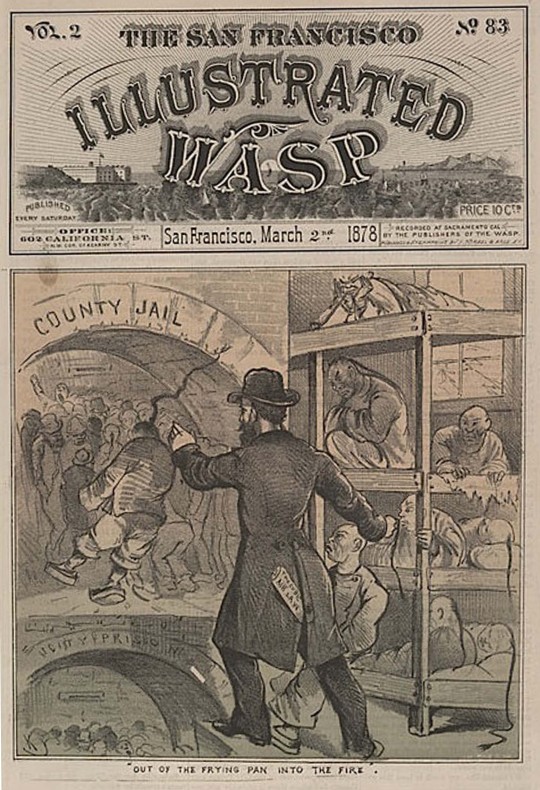
Ho sued then Sheriff Nunan for damages, claiming that the "Pigtail Ordinance" caused him irreparable harm.
On June 14, 1879, trial in a case about what the New York Times would later describe as “this childish attempt on the part of a community to persecute a race, in defiance of the Constitution and the laws” began in a San Francisco federal court, presided over by United States Supreme Court Justice Stephen Johnson Field. On July 7, 1879, Justice Stephen Johnson Field — in spite of heated criticism from the general public and lampooning in the press — found in favor of the plaintiff.
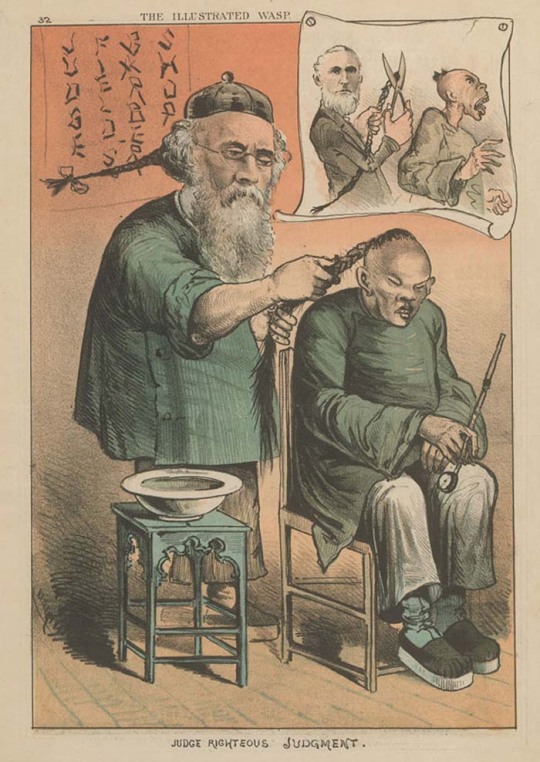
Field’s decision held that it was not within the powers of the Board of Supervisors to set such a discriminatory law and that the ordinance was, in fact, unconstitutional. In particular, he cited the Fourteenth Amendment to the United States Constitution which guarantees equal protection under the law to all persons within its jurisdiction. See Ho Ah Kow v. Nunan, 12 Fed. Cas. 252 (1879).
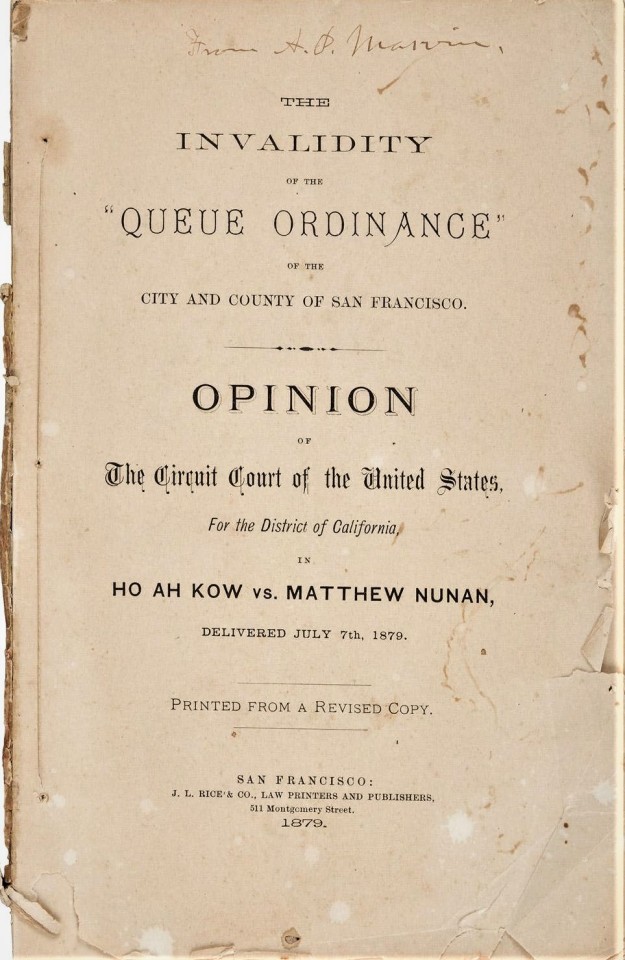
Nine days later, the New York Times reported Justice Field’s decision and the unusual “case in which the Constitution of the United States is invoked to defend a subject of the Emperor in China, temporarily residing in this country,” noting that “the cutting of the hair, otherwise, the cue, of the Chinese prisoner was not done to promote discipline or health. It was done to add torture to his confinement.”
The New York Times’ editors presciently observed the constitutional significance of the successful challenge to San Francisco’s Queue Ordinance, beyond the “cruel and unusual punishment” it inflicted, as follows:
"But, what is of more importance, the court held, in this case, that the whole spirit of the ordinance was in the violation of the Constitution and laws of the United States. It was intended only for the Chinese of San Francisco. ... And in our country hostile and discriminating legislation by a State against any persons of any class, creed, or nation, in whatever form it may be expressed, is forbidden by the fourteenth amendment of the Constitution.”
The district court’s decision was rendered seven years before, and served as precedent for, the landmark SCOTUS decision in Yick Wo v. Hopkins 118 U.S. 363 (citing Ah Kow v. Nunan).
Little is known about the fate of the plaintiff, Ah Kow. He was awarded $10,000 in damages. He undoubtedly had to wait a very long time before even contemplating a return to the motherland ruled by the Qing emperor.
In ensuing years, reform movements in China had begun demanding its removal as a badge of fealty, along with foot-binding and a change in constitutional government. In February 6, 1896, The San Francisco Call newspaper reported that the city’s Chinese residents were expressing concerns that wearing the queue as sign of loyalty to a foreign government could preclude native-born, Chinese San Franciscans from voting. More significant, The Call reported, “[t]here are about 500 voters in Chinatown now, . . . and before election day the Chinatown politicians expect to carry no less than 1000 in their vest pockets. At the last gubernatoral [sic] election 400 votes cast either way would have changed the result.”
Following the establishment of the Republic of China in 1912, Chinese American men gradually abandoned the traditional Qing-era queue, as part of a symbolic departure from the Manchu-dominated imperial rule. The queue, which had been enforced during the Qing Dynasty as a sign of submission, became a powerful visual representation of resistance against the old regime. In the early 20th century, as Chinese Americans' abandonment of the queue not only symbolized their alignment with modernity and progressive ideals in China but also a desire to integrate into the American sociopolitical landscape. This shift reflected not only a break from a past in which hairstyle had been weaponized against the community but also a conscious effort to redefine identity in the context of a new era.
------------------------
Text of the Ho Ah Kow v. Nunan decision may be read here.
4 notes
·
View notes
Text
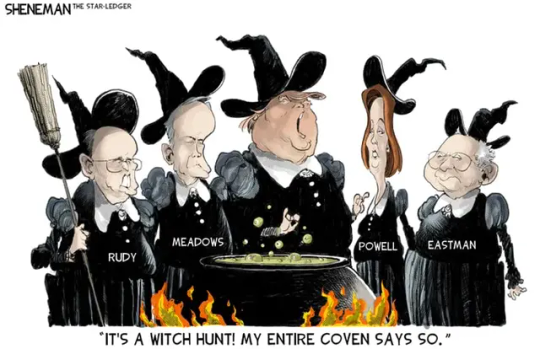
Drew Sheneman, The Star-Ledger
* * * * *
LETTERS FROM AN AMERICAN
HEATHER COX RICHARDSON
AUG 20, 2023
Various constitutional lawyers have been weighing in lately on whether former president Donald Trump and others who participated in the effort to overturn the results of the 2020 presidential election are disqualified from holding office under the Fourteenth Amendment to the Constitution. The third section of that amendment, ratified in 1868, reads:
“No person shall be a Senator or Representative in Congress, or elector of President and Vice-President, or hold any office, civil or military, under the United States, or under any State, who, having previously taken an oath, as a member of Congress, or as an officer of the United States, or as a member of any State legislature, or as an executive or judicial officer of any State, to support the Constitution of the United States, shall have engaged in insurrection or rebellion against the same, or given aid or comfort to the enemies thereof. But Congress may by a vote of two-thirds of each House, remove such disability.”
On August 14 an article forthcoming from the University of Pennsylvania Law Review by William Baude of the University of Chicago Law School and Michael S. Paulsen of the University of St. Thomas School of Law became available as a preprint. It argued that the third section of the Fourteenth Amendment is still in effect (countering arguments that it applied only to the Civil War era secessionists), that it is self-executing (meaning the disqualification of certain people is automatic, much as age limits or residency requirements are), and that Trump and others who participated in trying to steal the 2020 presidential election are disqualified from holding office.
This paper was a big deal because while liberal thinkers have been making this argument for a while now, Baude and Paulsen are associated with the legal doctrine of originalism, an approach to the law that insists the Constitution should be understood as those who wrote its different parts understood them. That theory gained traction on the right in the 1980s as a way to push back against what its adherents called “judicial activism,” by which they meant the Supreme Court’s use of the law, especially the Fourteenth Amendment, to expand the rights of minorities and women. One of the key institutions engaged in this pushback was the Federalist Society, and both Baude and Paulson are associated with it.
Now the two have made a 126-page originalist case that the Fourteenth Amendment prohibits Trump from running for president. Their interpretation is undoubtedly correct. But that interpretation has even larger implications than they claim.
Moderate Republicans—not “Radical Republicans,” by the way, which was a slur pinned on the Civil War era party by southern-sympathizing Democrats—wrote the text of the Fourteenth Amendment at a specific time for a specific reason that speaks directly to our own era.
When John Wilkes Booth assassinated President Abraham Lincoln in April 1865, Congress was not in session. It had adjourned on the morning of Lincoln’s second inauguration in early March, after beavering away all night to finish up the session’s business, and congressmen had begun their long journeys home where they would stay until the new session began in December.
Lincoln’s death handed control of the country for more than seven months to his vice president, Andrew Johnson, a former Democrat who wanted to restore the nation to what it had been before the war, minus the institution of slavery that he believed concentrated wealth and power among a small elite. Johnson refused to call Congress back into session while he worked alone to restore the prewar system, dominated by Democrats, as quickly as he could.
In May, Johnson announced that all former Confederates except for high-ranking political or military officers or anyone worth more than $20,000 (about $400,000 today) would be given amnesty as soon as they took an oath of loyalty to the United States. He pardoned all but about 1,500 of that elite excluded group by December 1865.
Johnson required that southern states change their state constitutions by ratifying the Thirteenth Amendment prohibiting enslavement except as punishment for a crime, nullifying the ordinances of secession, and repudiating the Confederate war debts. Delegates did so, grudgingly and with some wiggling, and then went on to pass the Black Codes, laws designed to keep Black Americans subservient to their white neighbors.
Under those new state constitutions and racist legal codes, southern states elected new senators and representatives to Congress. Voters put back into national office the very same men who had driven the rebellion, including its vice president, Alexander Stephens, whom the Georgia legislature reelected to the U.S. Senate. When Congress reconvened in December 1865, Johnson cheerily told them he had reconstructed the country without their help.
It looked as if the country was right back to where it had been in 1860, with legal slavery ended but a racial system that looked much like it already reestablished in the South. And since the 1870 census would count Black Americans as whole people for the first time, southern congressmen would have more power than before.
But when the southern state delegations elected under Johnson’s plan arrived in Washington, D.C., to be seated, Republicans turned them away. They rejected the idea that after four years, 600,000 casualties, and more than $5 billion, the country should be ruled by men like Stephens, who insisted that American democracy meant that power resided not in the federal government but in the states, where a small, wealthy minority could insulate itself from the majority rule that controlled Congress.
In state government a minority could control who could vote and the information to which those voters had access, removing concerns that voters would challenge their wealth or power. White southerners embraced the idea of “popular sovereignty” and “states’ rights,” arguing that any attempt of Congress to enforce majority rule was an attack on democracy.
But President LIncoln and the Republicans reestablished the idea of majority rule, using the federal government to enforce the principle of human equality outlined by the Declaration of Independence.
And that’s where the Fourteenth Amendment came in. When Johnson tried to restore the former Confederates to power after the Civil War, Americans wrote into the Constitution that anyone born or naturalized in the U.S. was a citizen, and then they established that states must treat all citizens equally before the law, thus taking away the legal basis for the Black Codes and giving the federal government power to enforce equality in the states. They also made sure that anyone who rebels against the federal government can’t make or enforce the nation’s laws.
Republicans in the 1860s would certainly have believed the Fourteenth Amendment covered Trump’s attempt to overturn the results of a presidential election. More, though, that amendment sought to establish, once and for all, the supremacy of the federal government over those who wanted to solidify their power in the states, where they could impose the will of a minority. That concept speaks directly to today’s Republicans.
In The Atlantic today, two prominent legal scholars from opposite sides of the political spectrum, former federal judge J. Michael Luttig and emeritus professor of constitutional law at Harvard Law School Laurence H. Tribe, applauded the Baude-Paulsen article and suggested that the American people should support the “faithful application and enforcement of their Constitution.”
LETTERS FROM AN AMERICAN
HEATHER COX RICHARDSON
#Heather Cox Richardson#Letters From An American#history#Civil War#Insurrection#J. Michael Luttig#Laurence H. Triube#Baude-Paulsen#the U.S. Constitution#the Presidency#violation of oath of office
7 notes
·
View notes
Photo
The score to beat, ladies and gentlemen:
Andrew Johnson was drunk when he made his inaugural address as Vice President of the United States on March 4, 1865. Multiple sources suggest Johnson had been drunk for at least a week prior, he drank heavily the night before the inauguration, and he consumed either three glasses of whisky or one glass of French brandy the morning of the ceremony. Witnesses variously described Johnson's speech as hostile, inane, incoherent, repetitive, self-aggrandizing, and sloppy.
The correspondent for the Buffalo Courier rendered Johnson's opening remarks as below:
Fel' cizzens, this 's mos (hic) 'spicious mom't v' my zistence 'ni may (hic) say v' my l (hic) ife; ni' mere t' swear (hic) leshens t' ol Dabe 'nt' sport consushun, n' tseet consushun (hic) sported 'tall azurs. D'u (hic) know y am' [with emphasis] my name's And' Johnson' v Tensee n' im a pul a (hic) pul-le-an 'n ol Dabe's a pal-le-an n' im a plean (hic) an th' constushue d'rives 'ts (hic) cons't from pleeans. The consushun 's (hic) a stri (hic) ing sturment 'n I f'l'ere b'fore the Sen't that 'fi know (hic) my-sel I'm a man n'a (hic) broth'n Amekin cizzen, and [with distinctness] I'm a proud listration' v th' fac that a (hic) pleean'n a man from the (hic) ranks can be elv (hic) ated t' th' secon, t' th' secon [with marked emphasis] gif'in the place o' the Amekin people. Fel' cizzens, I'm a pleian 'n (hic) 'n two minitsnaf'n that point, f'r'i'm a pleean (hic) an 'twon time was a tailrs boy n'i teller wir rail (hic) pleeans 'n, Old Dabe 'n the (hic) n' spreme Court d'rive [with statesmanlike dignity] d'rive'r cons't' d'rive power from th' (hic) Amekin pleeans. But twom (hic) inits'naf on that point. Tensee's allers been loy'l'ni (hic) glore'n dressing my fel' twom inits'naf on that (hic) point.

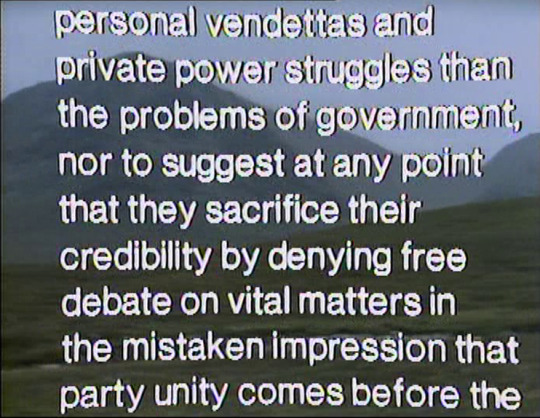
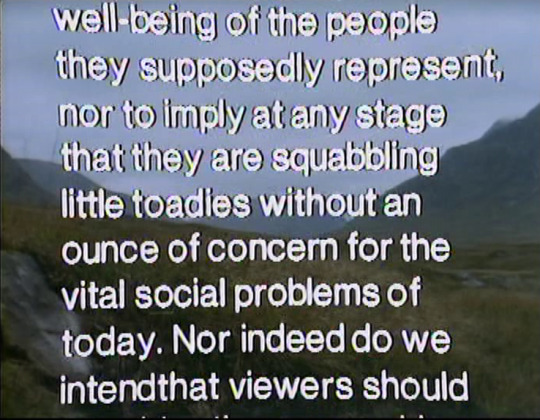

John Howard Davies & Ian MacNaughton - Monty Python’s Flying Circus (1969)
#johnson's actual amount put away is still hotly debated#so it may be churchill could simply hold it better
5K notes
·
View notes
Text
Events 5.9 (before 1950)
328 – Athanasius is elected Patriarch of Alexandria. 1009 – Lombard Revolt: Lombard forces led by Melus revolt in Bari against the Byzantine Catepanate of Italy. 1386 – England and Portugal formally ratify their alliance with the signing of the Treaty of Windsor, making it the oldest diplomatic alliance in the world which is still in force. 1450 – Timurid monarch 'Abd al-Latif is assassinated. 1540 – Hernando de Alarcón sets sail on an expedition to the Gulf of California. 1662 – The figure who later became Mr. Punch makes his first recorded appearance in England. 1671 – Thomas Blood, disguised as a clergyman, attempts to steal England's Crown Jewels from the Tower of London. 1726 – Five men arrested during a raid on Mother Clap's molly house in London are executed at Tyburn. 1761 – Exhibition of 1761, the inaugural exhibition of the Society of Artists of Great Britain opens at Spring Gardens in London. 1864 – Second Schleswig War: The Danish navy defeats the Austrian and Prussian fleets in the Battle of Heligoland. 1865 – American Civil War: Nathan Bedford Forrest surrenders his forces at Gainesville, Alabama. 1865 – American Civil War: President Andrew Johnson issues a proclamation ending belligerent rights of the rebels and enjoining foreign nations to intern or expel Confederate ships. 1873 – Der Krach: The Vienna stock exchange crash begins the Panic of 1873 and heralds the Long Depression. 1877 – Mihail Kogălniceanu reads, in the Chamber of Deputies, the Declaration of Independence of Romania. The date will become recognised as the Independence Day of Romania. 1901 – Australia opens its first national parliament in Melbourne. 1915 – World War I: Second Battle of Artois between German and French forces. 1918 – World War I: Germany repels Britain's second attempt to blockade the port of Ostend, Belgium. 1920 – Polish–Soviet War: The Polish army under General Edward Rydz-Śmigły celebrates its capture of Kiev with a victory parade on Khreshchatyk. 1926 – Admiral Richard E. Byrd and Floyd Bennett claim to have flown over the North Pole (later discovery of Byrd's diary appears to cast some doubt on the claim.) 1927 – The Old Parliament House, Canberra, Australia, officially opens. 1936 – Italy formally annexes Ethiopia after taking the capital Addis Ababa on May 5. 1941 – World War II: The German submarine U-110 is captured by the Royal Navy. On board is the latest Enigma machine which Allied cryptographers later use to break coded German messages. 1942 – The Holocaust in Ukraine: The SS executes 588 Jewish residents of the Podolian town of Zinkiv (Khmelnytska oblast. The Zoludek Ghetto (in Belarus) is destroyed and all its inhabitants executed or deported. 1945 – World War II: the Channel Islands are liberated from Nazi occupation. 1946 – King Victor Emmanuel III of Italy abdicates and is succeeded by Umberto II. 1948 – Czechoslovakia's Ninth-of-May Constitution comes into effect.
0 notes
Text
Westchester Soccer Club Adds Three More Players For Their Inaugural Season in USL League One

Westchester Soccer Club today added three more players to their roster for their inaugural season in USL League One. The three, midfielders Bryan Vazquez and Andrew Jean-Baptiste and defender Joel Johnson, join a growing mix of veterans and young, athletic talent as WSC readies to officially open their first season on March 8 in Greenville, SC against Greenville Triumph SC with their home opener at The Stadium at Memorial Park against Rhode Island SC on April 27. All three contracts are subject to approval by the league.
‘One of the key elements of our club will be making sure we have both depth and experience, and our latest three signees continue to add to both areas for us,’ said Simon Baines, Sporting Director of WSC. “All three will fit well into the structure we are creating.”
The three newest players include:
Andrew Jean-Baptiste (Brooklyn, NY) joins Westchester SC with over a decade of professional and international experience, most recently as center-back for Valour FC. Baptiste starred at the University of Connecticut, earning 2011 Big East Conference Defensive Player of the Year before being selected 8th overall by the Portland Timbers in the first round of the 2012 MLS SuperDraft. He played in MLS for Portland, Chivas USA, and the New York Red Bulls from 2012-2015, before heading abroad to join Swedish side Ettan Nyköpings BIS in 2016. In February 2019, Jean-Baptiste continued his European career until 2020, when he joined Canadian Premier League side Valour FC, where has played the past three seasons. Andrew has played internationally for both the Haitian National and US National teams in his career as well.
Joel Johnson Alajarín (Torrent, Valencia) is a right-back who spent the last eight seasons in USL League One, most recently for Charlotte Independence last season. Prior to his USL time, Johnson played on virtually every level of professional soccer in Spain, coming up through the club system of Valencia FC before joining Real Madrid C and then with Real Jaénand CD Buñol. He has also played internationally as a member of the Liberian National team since 2016.
Bryan Vazquez officially joins the professional ranks with the club having previously made one appearance as an amateur signing for FC Cincinnati 2 of MLS NEXT Pro during the 2024 season. The 18-year-old midfielder has previously made two appearances for the El Salvador U-20 Men’s National Team at the 2024 Concacaf U-20 Championship.
These are the newest additions to a roster that already include a strong group of Americans with USL experience, including: wing back Kemar Lawrence, fullback Samory Powder, midfielder Conor McGlynn and defender Stephen Payne and a trio of Dutch natives in midfielders Daniel Bouman, Dean Diego Guezen and striker Koen Blommestijn
The club will be announcing several more signings in the coming weeks, as they ready for their initial season this coming April. The full schedule is at https://www.westchestersc.com/

0 notes
Text
It's very cold out yeah and it's warm in the library little too warm that's the way they like it so we are noticing that people are working on trying to manipulate the atmosphere into stuff they want for others to become ill in fact today become ill and continues and stuff by the way and at some point sound that Trump has to go ahead and become legend. His forces are small and that time he gets in real small can't have foreigners assistance do not dragged out in that proper. People like Ken know it and waiting for the right time and it is arriving this is a function it's very important.
--I think there's a 20th it's going to be very very small and he's going to try and ruin tons of people and he's going to beat up badly. Then for 3 months a little less you're both through all sorts of hell he's going to get kicked out of his job the hard way and until the day where Nathan Hill was hung will be a massive nuisance to everyone. And it's coming up pretty soon.
--now some of the scene what looks like Hawks and sometimes they are but you're really possessed by evil men more or less and they suffer a lot doing it in the bag there like bewildered like at times I can't figure out what's happening it's like postpartum depression and they know leaving their body doesn't give them a good chance of survival but it's really the schedule so they come and do this lower level demons and I think they can take the next step using them and they'll survive better and you're mistaken some of them are inside are a little demons and they don't have power ultimately we decide they're forced to proceed. Nathan Hale was a very big figure he was a rebel now he's a mess his methods were very provocative and most could not stand him and now it's worse. The truth is they all know the date and the empire transfer it. We try to grab our phone and try to grab my son on several days. And fail. There's a large amount of superhero action from this point forward you're trying to use it to capture hours, we show up and we capture them. It pretty much starts April 15th 2025 and after that the next date is of another president leaving office and this guy is a walking disaster. Grant is exceeded by Rutherford b Hayes and that's Terry cheese man and he is in office for a few hours too all three die on March 4th and they're out of office and they're not gone forever after him is Garfield it looks like Jason and his September 19th. And Rutherford b Hayes and the others cannot be in there for a year but April is after March so this question and for the answer is they try to take the office before the inauguration maybe are some things that Tommy f is president and hands it off to Rutherford b Hayes because Tommy is under pressure from the empire and that's probably what it is hands it off to Garfield A year later and he's a mess by the way. Then it goes to Garfield and they're saying for 6 months and that is actually Trump again and people are having a hard time believing it
Oh this is fine and dandy but it doesn't really add up to what's actually happening so he asked them they said that the new guys don't make it to April 15th and we don't think that's it and they said they fight over the office as one person that doesn't sound too good so we looked at it again and it says that their president for 4 years some more and these guys are fighting each other very harsh and we don't think that they're going to make it
There's a lot of fighting and a lot of infighting and there's a lot of people who want to be president. The pseudo empire is getting beat up as well we don't think they're going to do that great they are not looking good the more luck or not but their population is still there. The news people are very assuming and we are going to bust them up.
There's a couple clues it looks like Tommy f that's a vice president but only briefly and that's what happens
Abraham Lincoln equals Donald Trump out of office April 15th 2025
Andrew Johnson takes office April 15th and is there for half a year until March 4th that's what we see it as Grant ake Ken takes office on March 4th and is in office for a year and rather be Hayes he's in office for one year and that is Terry c
James Garfield is in office March 4th to September 19th and that's a few years from now 2 years really that's not too long
Chester Arthur takes off of September 19th and it's upon the demise of the president and his vice president and as soon as suspicious circumstances and there's a war started again and they're down to a few cities yes and he is president only until March 4th and these people are very weak and they acted and it's despicable awful of the Mac proper and there's a war on them because of it
Grover Cleveland and it's Brad takes office after Trump which is Chester Arthur and March 4th and he runs things for a year
William McKinley takes office March 4th and his little heart to recognize he looks like a Mac proper base not it almost want to say make green and that's who he is and he runs for 6 months and now Teddy Roosevelt that's a big one and once again September to March another 6 months it's odd but it just keeps happening and again kicked out and they're fighting each other like madness and it continues and continues Taft one year we believe it looks like Daniel now this happens in the next 4 years 5 years of continues and all this stuff happens over a period of years
If you believe that we have some waterfront property in Arizona....
We showed you the numbers those numbers are real it's going to speed up phenomenally very very soon to a running pace and they will all deteriorate very quickly because of their own actions what's going to happen and they will be out very soon so you can think about this but it isn't going to happen
Thor Freya
You can ask the Mac proper
Zues Hera
Olympus
He's succeeded by Andrew Johnson. And you think it's Tommy f and it is not it is a temporary president and he gets in the presidency until March 4th 2025 and he is succeeded by Ulysses S Grant who is Tommy f
0 notes
Text
Trump is not the only president to avoid attending a successor’s inauguration
Thats right! ha
No, Donald Trump is not the only president to skip his successor’s inauguration. Sign up for the VERIFY Fast Facts daily Newsletter! WHAT WE FOUND Donald Trump did not attend President Joe Biden’s inauguration in 2021, but he was not the first president to skip attending a successor’s ceremony. Four other presidents have missed their successor’s inauguration, however, Trump was the first to do so in over 150 years, according to the Council on Foreign Relations. John Adams, John Quincy Adams, Martin Van Buren and Andrew Johnson did not attend their successor’s inaugurations, The White House Historical Association says. Woodrow Wilson also did not publicly attend the inauguration of Warren G. Harding, due to mobility issues, but he was in the Capitol building at the time of the ceremony, The White House Historical Association adds. Typically, an outgoing president is in attendance at the next president’s inauguration ceremony. This tradition initially began in 1837, when Andrew Jackson attended the inauguration of Martin Van Buren, a Troy University article explains. In 1801, John Adams became the first president to skip a successor’s inauguration, avoiding Thomas Jefferson’s ceremony possibly “to avoid provoking violence between Federalists and Democratic-Republicans, as this was the first time the presidency was transferred to an opposing party,” according to The White House Historical Association. He was also not formally invited by Jefferson. In 1829, John Quincy Adams boycotted the inauguration of Andrew Jackson, according to the Library of Congress. It's unclear why Martin Van Buren did not attend the inauguration of William Henry Harrison in 1841, as multiple sources say the two seemed to get along and even had a dinner together shortly before the inauguration. The White House Historical Association notes that Van Buren’s son was ill at the time. Andrew Johnson, who was also the first president to be impeached and had not run for re-election, skipped Ulysses S. Grant’s inauguration in 1869. The two “detested each other,” the Library of Congress explains, and “Grant said he would not ride in the same carriage with Johnson to the inaugural ceremony when it looked like Johnson might attend.”
0 notes
Text
Anna Butterss Interview: Los Angeles in 2024

Photo by Samantha Lee
BY JORDAN MAINZER
For much of their career, bassist Anna Butterss has constructed bridges between musical worlds. The classically trained Australian musician moved to Los Angeles a decade ago, not too long after beloved experimental guitarist Jeff Parker relocated there. Like the versatile Parker, who has made his mark in both the jazz and post-rock worlds, Butterss quickly became an in-demand player in the jazz and indie rock spheres, both as a session and touring musician. Shortly after moving, Butterss connected with Parker, joining his now long-running quartet, alongside saxophonist Josh Johnson and drummer Jay Bellerose. (I first heard Butterss' nimble work on Makaya McCraven's landmark 2018 album Universal Beings.) At the same time, Butterss, always on the periphery of hyped indie music through their friends, found themselves alongside Aughts stalwarts Jenny Lewis and Andrew Bird and then-up-and-comers like Phoebe Bridgers. Over the past five years, Butterss has buoyed career reinventions and risen alongside their peers.
2024, then, feels like the first year where Butterss is moving to the forefront. Though they released their debut album Activities and helped Parker immortalize the Enfield Tennis Academy in 2022, this time, over the span of a mere six months, they've been a part of three major improvisational jazz records. First, Butterss is one-fifth of SML, who I profiled earlier this year after their debut record release in June. SML Songs like "Industry" showcased Butterss' ability to steadily drive a track alongside freewheeling bandmates, while "Dolphin Language" gave them a turn to have fun splintering. The quintet played two sets at the inaugural Warm Love Cool Dreams festival at the Salt Shed in September, one performing material from Small Medium Large, the other backing Jamaican dancehall DJ and singer Sister Nancy.
Butterss delves deeper into the world of grooves on the just-released new Jeff Parker ETA IVtet album The Way Out of Easy, a follow-up recording to Mondays at the Enfield Tennis Academy. Like the latter, The Way Out of Easy was recorded at the ETA and mixed live by engineer Bryce Gonzales, on a night in January 2023. The four longform tracks that make up the record are certainly opportunities for Parker and Johnson's expressions, but don't discount Butterss' understated and underrated adaptability. Throughout "Freakadelic", an extended version of a long-time Parker composition, Butterss and Bellerose provide a hip-hop groove underneath Parker's prickly and sinuous lines, only to wake up a little bit as Johnson's saxophone whirrs and hypnotizes. Butterss mirrors Johnson's rounded mournfulness on the otherwise beatific "Late Autumn", while on "Easy Way Out", they emulate Parker's slow cascades, a perfect contrast to Johnson and Bellerose's expressiveness. Of course, closer "Chrome Dome" ends up a blissed out dub song, Butterss once again a masterfully stable counterpart to Johnson's garbled notes and Bellerose's polyrhythms.
It's clear, then, that all of Butterss' experiences informed their second solo album and International Anthem debut, Mighty Vertebrate, released last month. In early 2023, Butterss found themselves wanting to create while balancing their busy schedule. In order to force themselves to write freely without succumbing to their own judgements and internal monologue, Butterss adopted constraints similar to Brian Eno's Oblique Strategies. "Pokemans", for instance, arose from the goal to use the bass in a way that belies the instrument's typical role. But Butterss was careful not to let Mighty Vertebrate be an album solely reflective of its process, and it sounds loose. They created the stems of the songs before fleshing them out with percussionist Ben Lumsdaine; at that point, the songs were ready for tracking at Chris Schlarb's BIG EGO with Johnson and another SML bandmate, Gregory Uhlmann. As a result, Mighty Vertebrate is diverse and extensive. "Ella" creates a world out of a two-note guitar line and saxophone processed through a synthesizer. "Lubbock" juxtaposes wiry guitar and swirling woodwinds atop raining percussion. "Saturno"'s warped bells give way to a percussion and saxophone groove, Butterss leading the evolution into a rich tapestry. Standout track "Dance Steve" mashes up Malian desert blues and synth punk, a collage of samples, syncopated 808s, synths, and in a full circle moment, a Jeff Parker guitar solo. Perhaps most impressive is that Mighty Vertebrate is cohesive through natural patterns that emerged throughout its creation, Butterss paring its songs down before building them back up, just like on their work with SML and Parker.
In September, a week before the album's release and just before SML's sets at Warm Love Cool Dreams, Butterss did get to try out Mighty Vertebrate songs live with their band at Marz Brewing. They then played a proper record release show in Los Angeles at 2220 Arts + Archives, the day the album came out digitally and on vinyl. A few days later, I spoke to Butterss over Zoom about the making of Mighty Vertebrate, the L.A. scene and International Anthem, post-rock, album and song title meanings, and misheard lyrics. Next week, starting on Monday, Butterss will take a victory lap to celebrate their stellar year, playing in a three-night International Anthem residency at Public Records in Brooklyn: with Jeff Parker ETA IVtet, SML, and their band. It's safe to say you'll be continuing to hear Butterss' name a lot for the next several years. Not only is SML set to return in 2025 and Butterss working on their next record, but they've been a full time member of none other than Jason Isbell & the 400 Unit for a year. Add the Americana/alt-country genre to the list of worlds among which Butterss has built connections.
Read our conversation below, edited for length and clarity.

Since I Left You: Why did you decide to make a record using Oblique Strategies-inspired tactics? Was it out of necessity, or was it something you always wanted to do?
Anna Butterss: It's the former for sure. Writing music, I enjoy doing it, but I also find it very hard, because I'm incredibly judgmental, and it's hard for me to think in the moment and follow an idea without already judging it. I'm like this with other things as well. I've always practiced the bass with these very specific restrictions in mind, very structured, so this was a way to get myself to be creative.
I started writing music that way a few years ago. It was a little challenge to myself called "one-hour beats," which is exactly what it sounds like. [laughs] How much of a beat can you make in one hour? If it's bad, if you don't like it, you've only spent an hour and have probably learned something. I started [Mighty Vertebrate] off like that. I spent a lot of time working on the music, but I'd go back and open up one of the ideas and ask, "Is this one cool?" I'd work on that one for an hour or two hours and put it away. I spent the whole year doing that.
SILY: Did you ever fully stray from your initial goal? Or were the finished songs pretty faithful to their original restrictions?
AB: I strayed away. The restrictions were a means to an end, to get something written. Once you get an idea down, it's much easier to manipulate it and try different things, but getting an idea down firstly is the hardest part. Once I felt like I had a strong or compelling idea, I'd let myself do whatever I needed to do. If I was having a good time working on something, I wouldn't put more restrictions on it.
SILY: What ties all of these songs together? Is it the process you used to make them?
AB: Hmm...that's a good question. It's a pretty eclectic record. I think the thing that ties them together for me is that they're songs I wrote during a period of my life, during 2023. A lot of them have similar sonic tendencies, a lot of guitars because it's an instrument I can kind of play, and drum machine. But the thing that ties them together is emotionally how I was experiencing that year. With the band, we all play together a particular way, and that ties them together, too. If I listen back to them, I can hear melodic tendencies I have and forms I gravitate towards, but I wasn't trying too hard to push them all into the same zone.
SILY: At what point did you bring in the band in the process of making Mighty Vertebrate?
AB: Quite late. I brought in [co-producer] Ben Lumsdaine...almost a year after we started writing it. I tried to get as much of it done by myself as I could. I had demos that were in pretty good shape. All the parts were there, but I wasn't trying too hard to get quality recordings. Some of the songs don't have a live band on them, like "Bishop" or "Dance Steve". Ben and I worked on them a lot. We tracked drums, bass, and more guitars. The other two guys in the band, I wrote charts for everything and we rehearsed one time and recorded in the studio for two days. Ben and I did some more overdubs, and that was it.
SILY: The songs on the album that do have a live band don't sound too different from the ones that don't have a live band. That is, if you were to listen to the album without paying the utmost attention, you might not necessarily realize which songs had a band and which didn't. There's an abstraction to the aesthetic. Was that something you were going for?
AB: In a way, yes. I had experimented a little bit on Activities with blending live drums, and we did synths with live bass. I had that in mind when I was making the record. Also, the fact that you have Greg playing guitar on some of the tracks, me playing on some of them, Jeff playing on some of them, Ben playing on some of them, it blurs the lines. Both Greg and Josh use effects in an organic way when they're playing, so it gets blurred a bit in a way I find pleasing. I wanted it to be its own world, not just an acoustic jazz record or an electronic record. I wanted it to live in a between space.
SILY: Do you think the individual musicians' playing styles started to blend, too? For instance, there were some guitar solos that sounded like Jeff Parker that might not have been Jeff Parker.
AB: Definitely. Jeff's been a big influence on the four of us, for sure. We've all played with him, and when I started messing around with the guitar, I thought, "Oh, this is just me sounding like a very cheap version of Jeff," because that's the guitarist I listen to the most. I think I sound a little less like him on the guitar now. Playing together for a really long time in different combinations, there's a shared language, sonic world, and tendencies. I hope other people hear this record and think, "This sounds like something that came out of Los Angeles in 2024." I like records where we can still have that sense of place, even though we're making music in such a globalized way. I feel like we have a little scene in Los Angeles that has a distinctive sound.
SILY: Certainly. The International Anthem family, while based in Chicago, has so many artists who are based in L.A. There's also the Enfield Tennis Academy and its branches. It's like one of the last remaining active scenes.
AB: [laughs] I hope not! It's definitely an International Anthem-sounding record as well. Greg's from Chicago, Josh grew up near Chicago, Jeff spent a lot of time in Chicago, and Ben, Josh, and I all went to school in Indiana, so we have a strong Midwest connection.
SILY: Where did the vocals on "Breadrich" come from?
AB: The ones that are a little sing-song are me. It's [inspired by] a character from a Mexican TV series called La Casa de las Flores, a Netflix series I've watched about three times during the pandemic. It's like a telenovela, but it's very modern and revolves around a lot of drag queens. There are trans people and bisexual main characters, but it's also a telenovela, so it's very dramatic and the plotlines are kind of ridiculous. One of the main characters, Paulina de la Mora, is kind of iconic and has an iconic way of speaking. I was also listening to a lot of Madlib and MF Doom, and MF Doom has so many cartoon and comic elements, so "Breadrich" was my hint at that, with me reimagining what it would be like if [Paulina de la Mora] had a spinoff.
I got into hip hop...in my 20's, having come from a very jazz background. It fascinates me and I love it. I'm not super directly hip hop-influenced, but it's something I think about a lot when working on things.
SILY: I was going to ask, since you collaborated on this record with John Herndon on the video for "Pokemans" and the album art, whether you were influenced by any of his A Grape Dope material.
AB: Not directly. Also, I get a ton of Tortoise comparisons, and I get why, but I really tried to steer clear of listening to that type of music when I was making this record because I didn't want it to sound too derivative. But I love John and am happy he did such great art for the record.
SILY: The Chicago post-rock connection to this current wave of jazz is palpable, because Chicago jazz preceded Chicago post-rock.
AB: Definitely. I've spent a fair amount of time in Chicago but have never lived there. I'm listening to all these records 10-20 years after they came out, so I'm getting a picture and sense of it. I also play a lot with Jeff and am close with people who have been involved in those scenes, so I'm getting a secondhand version of it. But I think it's cool that music that's been around for a while is still very relevant and current sounding.
SILY: How did you come up with the track titles on Mighty Vertebrate?
AB: "Bishop", my grandfather was a bishop. [laughs] What else do we have? "Dance Steve", I put a dance beat under a sample I thought sounded like Steve Reich. It was stuff like that. I do have a note in my phone where I collect phrases people will say, if they sound interesting, which is where "Breadrich" came from. My partner said that we were "bread-rich" after a friend gave us a bunch of bread, which I thought was funny.
SILY: It can be somewhat of a Rorschach test. Some of the titles on Small Medium Large were working titles or joke titles that ended up being perfect. It adds a levity to the project.
AB: I remember talking with Greg when trying to come up with titles and being like, "It's hard to come up with song titles that are original," and he was just like, "Oh, don't worry about that. There will always be another song [that shares a title.]" I don't think it matters that much. The record title, more so. But at the end of the day, it's instrumental music. It's already pretty abstract, and I want people to be able to have their own experience with it, instead of saying, say, "'Seeing You' is about the time I saw this person." Anyone can interpret it their own way and have their own relationship with it.
SILY: So what's the meaning of the record title to you?
AB: That came from an Andrew Bird lyric I misheard and was singing wrong when I was touring with him. [On Inside Problems' "Stop n’ Shop", it's] supposed to be "Mighty bird of prey," and I didn't realize that until he mentioned it. [laughs] I think it's evocative of a lot of different things. It can be a made-up or fantastical creature, or a way of describing humanity or the dichotomy of humans being so powerful but at the end of the day, vertebrates who will die just like everything else. There's an element of that. It doesn't mean one specific thing to me. I like that it's open-ended.
SILY: The fact that it came from something misheard, but still makes sense, is cool.
AB: [laughs] Yeah. I tried to convince Bird to change the lyric. He wasn't interested.
SILY: Do you pretty actively listen to new music?
AB: I'm trying to more these days. KCRW's morning program, Morning Becomes Eclectic, plays a lot of different genres, and I listen to that pretty religiously. It's where I find a lot of new music. That's probably where I heard Jenny Lewis. I remember driving on the freeway, hearing it and thinking, "What is that?" It turned out a bunch of my friends played in her band. These days, I'm trying to listen to records right when they come out, because otherwise it gets overwhelming.
SILY: What's your approach to playing the songs on Mighty Vertebrate live?
AB: There's more room for expansion. All of the tracks on the record are pretty short; I like to get in and get out, not have anything excessive. [Live,] there's more improvisation involved. A lot of the songs, the way they're structured, the bass line holds everything together statically, and everything is moving around it. I love that. As a bass player, that's what I want to do. I want to be the center of things and everyone else swirling around on top. I had the easiest time playing it live while demanding a lot of everyone else. [laughs]
SILY: Do you foresee these songs taking new shapes the more you play them?
AB: Definitely. That would be ideal. I don't know how many opportunities I'll get to play them. Unfortunately, it's really hard. Everyone's super busy, and I feel like it needs to be these specific people playing the music, and our schedules are all packed. After our show at Public Records, I'd like to continue to play it live and tour, but I don't know how that would work. I don't feel a need to adhere strictly to what's on the record, because if people want to hear the record, they should listen to the record. That's always been my feeling about it.
SILY: What else is next for you in the short and long term?
AB: Some SML stuff, definitely, in the new year. I'll start thinking about the next record. But right now, I'm trying to get through the rest of this year without having an emotional breakdown. [laughs]
SILY: You're very prolific.
AB: I'm a bass player. It's a blessing and a curse.
SILY: Is there anything you've been listening to, watching, or reading lately that's caught your attention or inspired you?
AB: Let me pull up my listening journal...I've been all over the place. My friends have a band called Twin Talk, [based] in Chicago. It's a great trio. They just put out a new record I've been heavily spinning. It's very beautiful. A lot of Brazilian music. We're reorganizing our record collection, so I've been going back and finding a lot of things. Honestly, it's all over the place. I like starting with my friends' records and going from there. Michael Mayo just put out a great record last week. I feel like a bunch of people put out records when I put out mine. Every Instagram post was about a new record.
#interviews#live picks#anna butterss#nonesuch#international anthem#chris schlarb#big ego#gregory uhlmann#public records#john herndon#mighty vertebrate#samantha lee#jeff parker#josh johnson#jay bellerose#makaya mccraven#universal beings#jenny lewis#andrew bird#phoebe bridgers#activities#enfield tennis academy#sml#warm love cool dreams#the salt shed#small medium large#sister nancy#jeff parker eva ivtet#the way out of easy#mondays at the enfield tennis academy
0 notes
Text
Andrew Johnson's drunk vice-presidential inaugural address
https://en.wikipedia.org/wiki/Andrew_Johnson%27s_drunk_vice-presidential_inaugural_address
0 notes
Text
They’re saying aloud what they once whispered behind closed doors. Back in 2016, when he was a Republican congressman but not yet House speaker, Kevin McCarthy said in a private meeting with GOP leaders, “There’s two people, I think, Putin pays: [Representative Dana] Rohrabacher and Trump … swear to God.” (Rohrabacher, once dubbed “Putin’s favorite congressman,” lost his seat in 2018.)
McCarthy, confronted with the leaked audio in 2017, claimed it was a joke. But anyone paying attention to how Russian intelligence services run influence operations—which I do, as a former CIA officer—knows it is anything but. It raises a legitimate, and deadly serious, question: Have Russian operatives paid any Republican officials?
Consider the news last week that authorities in several European countries had uncovered a vast corruption network, in which European politicians were paid to spread anti-Ukraine and pro-Russia propaganda. The network...was orchestrated by pro-Russia Ukrainian oligarch Viktor Medvedchuk. Politicians from Germany, France, Poland, Belgium, the Netherlands, and Hungary were allegedly paid directly with cash or through cryptocurrency exchanges. [...] It is naïve to think the same pattern does not exist in the United States, given the ample evidence of coordinated pro-Russian talking points from several Republican politicians. Just this week, Marjorie Taylor Greene spoke to Steve Bannon about Ukraine’s persecution of Christians, which is a Kremlin talking point aimed at boosting the pro-Moscow wing of Ukraine’s Orthodox Church. The U.S. should be spending money on the border with Mexico, not on Ukraine aid? That’s a Kremlin talking point. Russia invaded Ukraine to defend itself against an expanding NATO? That’s a Kremlin talking point. Call for a cease-fire, and give Russia Crimea and eastern Ukraine? That’s a Kremlin talking point.
While we cannot say for sure if any Republican officials are on the Russian payroll in ways similar to their European counterparts, we can be sure that they��ve been approached. As the director of national intelligence wrote in 2021, Russian intelligence operatives and their proxies “sought to use prominent US persons and media conduits to launder their narratives to US officials and audiences. These Russian proxies met with and provided materials to Trump administration-linked US persons to advocate for formal investigations; hired a US firm to petition US officials; and attempted to make contact with several senior US officials. They also made contact with established US media figures.”
As for payments, we’ve seen a disturbing pattern. In 2017, Andrew Intrater donated $250,000 to Trump’s inauguration fund and, a few months later, donated $35,000 to Trump’s reelection campaign. Intrater is a cousin of Viktor Vekselberg, a Russian oligarch who was sanctioned by the U.S. in 2018 for his connections to Putin. We know that oligarchs play an integral role in funding Russian influence operations. One oligarch revealed to special counsel Robert Mueller that Putin held quarterly meetings with his oligarchs to discuss strategic spending.
In 2018, a Texas-based firm donated money to House Speaker Mike Johnson. That firm is 88 percent owned by three Russians. And last week, we learned that Trump Media received loans from a Russian bank to help the company stay afloat before it went public and at a time when no U.S. bank would lend to Trump.
Any donations that might have been made through anonymous LLCs to PACs—perhaps with attached quid pro quos—are likely to remain opaque, due to the Supreme Court’s Citizens United decision. [...] Among the entities promoted by the Voice of Europe propaganda network was Hungary’s Center for Fundamental Rights, which “considers preserving national identity, sovereignty, and Judeo-Christian social traditions as its primary mission.” CFR is funded by the government of Viktor Orbán and has twice organized a conference in Budapest for the Conservative Political Action Committee, which helps shape policy on the American right. The Heritage Foundation—which has spearheaded Project 2025, the authoritarian blueprint for a future Republican administration—has become increasingly cozy with Hungary, and even hosted Orbán privately last month. It is quite possible, perhaps even likely, that some people who are on the Russian payroll were at the Heritage event, their role to influence and build support for pro-Russian policies.
[emphasis added]
The short answer is yes. So is the long answer.
#russian propaganda#ukraine#trump#republicans#marjorie taylor greene#european union#corruption#the new republic#alex finley
89 notes
·
View notes
Text
Events 3.4 (before 1870)
AD 51 – Nero, later to become Roman emperor, is given the title princeps iuventutis (head of the youth). 306 – Martyrdom of Saint Adrian of Nicomedia. 581 – Yang Jian declares himself Emperor Wen of Sui, ending the Northern Zhou and beginning the Sui dynasty. 852 – Croatian Knez Trpimir I issues a statute, a document with the first known written mention of the Croats name in Croatian sources. 938 – Translation of the relics of martyr Wenceslaus I, Duke of Bohemia, Prince of the Czechs. 1152 – Frederick I Barbarossa is elected King of Germany. 1238 – The Battle of the Sit River begins two centuries of Mongol horde domination of Russia. 1351 – Ramathibodi becomes King of Siam. 1386 – Władysław II Jagiełło (Jogaila) is crowned King of Poland. 1461 – Wars of the Roses in England: Lancastrian King Henry VI is deposed by his House of York cousin, who then becomes King Edward IV. 1493 – Explorer Christopher Columbus arrives back in Lisbon, Portugal, aboard his ship Niña from his voyage to what are now The Bahamas and other islands in the Caribbean. 1519 – Hernán Cortés arrives in Mexico in search of the Aztec civilization and its wealth. 1628 – The Massachusetts Bay Colony is granted a Royal charter. 1665 – English King Charles II declares war on the Netherlands marking the start of the Second Anglo-Dutch War. 1675 – John Flamsteed is appointed the first Astronomer Royal of England. 1681 – Charles II grants a land charter to William Penn for the area that will later become Pennsylvania. 1686 – After being unofficially established as a settlement in 1678, the Dominican mission of Ilagan is founded in the Philippines. 1769 – Mozart departed Italy after the last of his three tours there. 1776 – American Revolutionary War: The Continental Army fortifies Dorchester Heights with cannon, leading the British troops to abandon the Siege of Boston. 1789 – In New York City, the first Congress of the United States meets, putting the United States Constitution into effect. 1790 – France is divided into 83 départements, cutting across the former provinces in an attempt to dislodge regional loyalties based on ownership of land by the nobility. 1791 – Vermont is admitted to the United States as the fourteenth state. 1794 – The 11th Amendment to the U.S. Constitution is passed by the U.S. Congress. 1797 – John Adams is inaugurated as the 2nd President of the United States of America, becoming the first President to begin his presidency on March 4. 1804 – Castle Hill Rebellion: Irish convicts rebel against British colonial authority in the Colony of New South Wales. 1813 – Cyril VI of Constantinople is elected Ecumenical Patriarch of Constantinople. 1814 – War of 1812: Americans defeat British forces at the Battle of Longwoods between London, Ontario and Thamesville, near present-day Wardsville, Ontario. 1837 – The city of Chicago is incorporated. 1848 – Carlo Alberto di Savoia signs the Statuto Albertino that will later represent the first constitution of the Regno d'Italia. 1849 – Zachary Taylor, 12th President of the United States of America and Millard Fillmore, 12th Vice President, did not take their respective oaths of office (they did so the following day), leading to the erroneous theory that outgoing President pro tempore of the United States Senate David Rice Atchison had assumed the role of acting president for one day. 1861 – The first national flag of the Confederate States of America (the "Stars and Bars") is adopted. 1865 – The third and final national flag of the Confederate States of America is adopted by the Confederate Congress. 1865 – U.S. politician Andrew Johnson made his drunk vice-presidential inaugural address in Washington, D.C.
0 notes
Photo
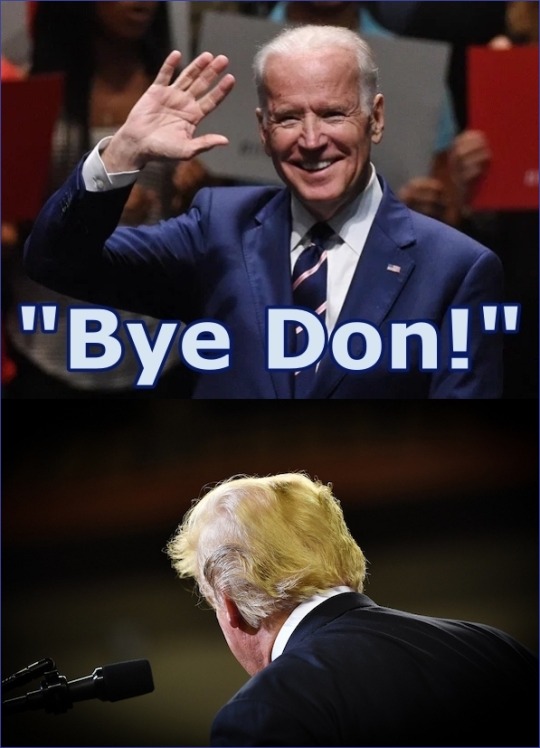
The worst president since Andrew Johnson will be the first departing president since Andrew Johnson not to attend the inauguration.
#joe biden#inauguration#departure#donald trump#loser donald trump#donald trump is a loser#andrew johnson
20 notes
·
View notes